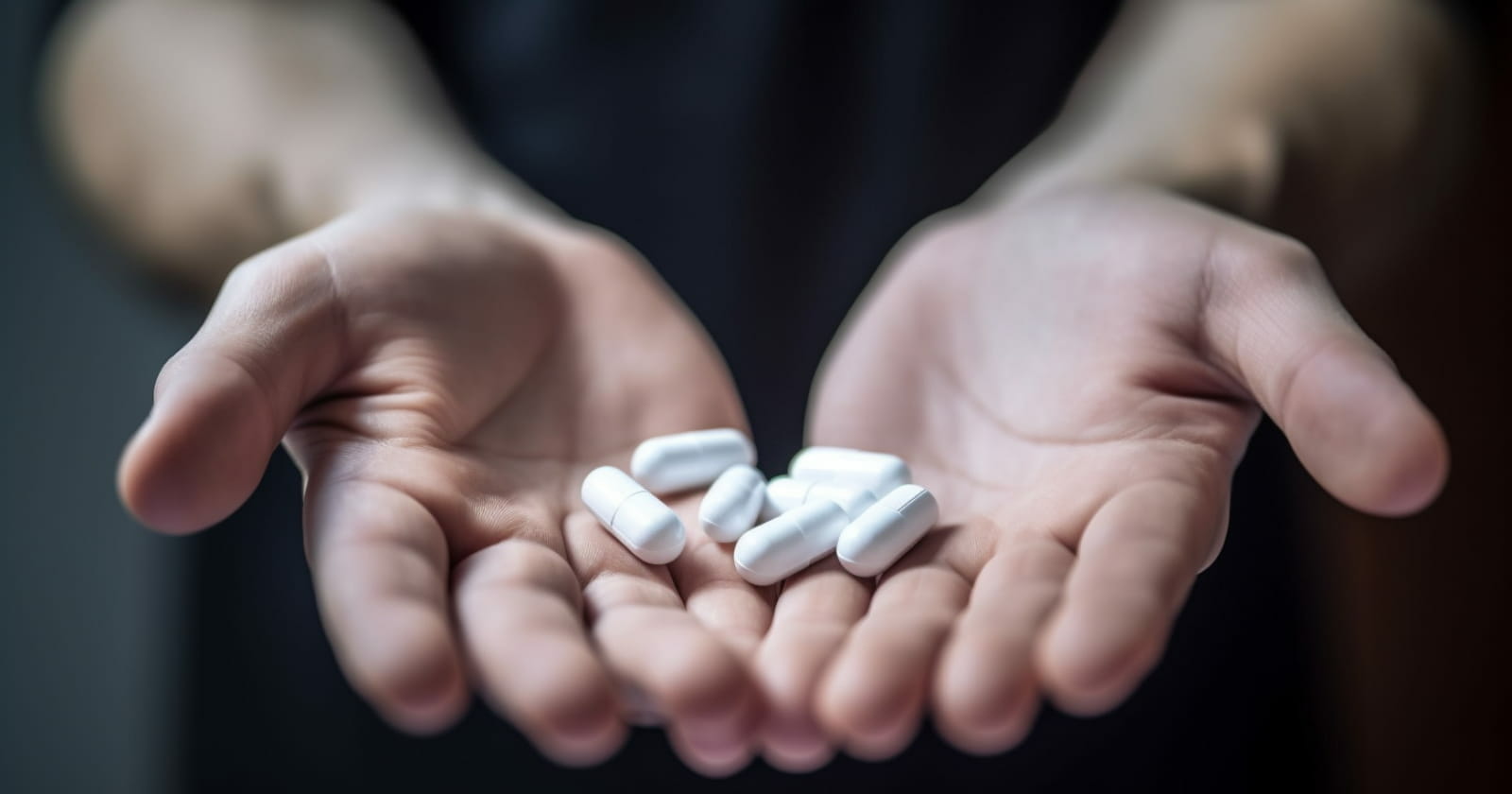Fisetin, a natural compound found in various fruits and vegetables, has potential health benefits and can also be taken as a supplement. Yet, determining the appropriate dosage for fisetin supplements can be challenging due to limited clinical studies on humans.

Key takeaways:
- There is no clear recommendation for the right dosage of fisetin supplements, as research is ongoing.
- Fisetin can be obtained from natural sources like fruits and vegetables, but the amount varies depending on the food.
- Fisetin supplements generally contain higher doses, ranging from 100 to 500 mg, with some manufacturers offering doses exceeding 1000 mg for twice-a-month use.
- Studies are being conducted to investigate the effects of fisetin at different doses for various conditions.
- The ideal time to take fisetin supplement and for how long is still unknown. It’s a good idea to follow the manufacturers’ instructions and consult a healthcare provider.
Fisetin, a flavonoid found in some fruits and vegetables, has gained attention recently due to its potential health benefits, including anti-inflammatory, antioxidant, and anticancer properties.
While fisetin can be obtained from natural sources such as strawberries and onions, its supplements offer a higher concentration.
But how much fisetin should you take as a supplement? Currently, there is no clear guideline.
How Much Fisetin Should I Take?
Understanding the right amount of fisetin to take can be tricky because there isn’t a clear recommendation.
Fisetin is primarily found in some fruits and vegetables, such as strawberries, apples, lotus roots, and onions. Eating foods with fisetin can give you a moderate amount of this compound, but the amount can vary depending on the food.
Fisetin supplements generally contain more fisetin than natural sources, with daily doses ranging between 100 and 500 milligrams (mg).
Some manufacturers offer higher doses exceeding 1000 mg, but these doses should only be taken twice a month.
That said, there isn’t a recommended dosage since most research has been done on animals.
If you’re pregnant or breastfeeding, it’s best to avoid fisetin completely since its effects on these conditions have not been extensively studied.
What Does the Science Say About Fisetin Dosage?
Scientists are researching the effects of fisetin at various doses.
For example, in a current study, older women take 20 mg of fisetin for each kilogram of their body weight for two days per month and for a total of two months. The researchers want to see if fisetin can help with bone loss and gait issues in these women.
Another clinical trial is looking at how fisetin affects people with advanced chronic kidney disease. The participants take 20 mg of fisetin per kilogram of body weight per day for two consecutive days.
A different study is investigating whether older women can improve their skeletal health by taking 20 mg of fisetin per kilogram of body weight per day for three consecutive days, along with other senolytic drugs.
Let’s calculate it.
For someone who weighs 150 pounds (around 68 kilograms), taking 20 mg of fisetin per kilogram of body weight would be about 1360 mg of fisetin. However, it’s important to remember that in the studies mentioned, the participants only take fisetin for about two or three days per month, not every day.
An additional trial is testing if daily supplementation with a 100-mg fisetin capsule taken with food is beneficial for patients with colorectal cancer. The participants take the fisetin capsule every day for seven weeks.
What Happens if I Take Too Much Fisetin?
Since there haven’t been many studies on fisetin supplements in humans, we’re not sure how much fisetin is considered too much or what might happen if someone takes too much fisetin.
We also don’t have enough information about the long-term effects of fisetin supplementation.
There are a few reports of people experiencing side effects after taking fisetin supplements, such as diarrhea and nausea. The ideal approach is to follow the recommended dosage guidelines for the fisetin supplement you’re using.
Also, check with your healthcare provider before taking fisetin or any new dietary supplements.
How Should I Take Fisetin?
Currently, there is no specific guidance on whether to take fisetin with food or on an empty stomach.
In one study, participants were asked to take fisetin supplements with food.
However, it’s important to remember that fisetin is poorly absorbed in the intestines. So, taking it with food may help with its absorption.
Scientists have discovered that consuming fisetin along with fats improves its bioavailability, making it easier for your body to absorb and use.
This finding has prompted several manufacturers of fisetin supplements to include oils in their formulas. These oils help enhance the bioavailability of fisetin, which means that more of the compound can be absorbed and used by your body.
When Is the Best Time to Take Fisetin?
The best time of day to take fisetin has yet to be determined through scientific research. It’s a good idea to follow the instructions from the supplement manufacturer or ask your healthcare provider for personalized advice.
Some individuals find it helpful to take fisetin with meals to aid in its absorption, while others may choose a different time of day that suits their schedule and personal preference.
Until clear guidance is provided, finding the most convenient and comfortable time to take fisetin can be a matter of trial and error.
How Long Should I Take Fisetin Supplements?
The length of time someone should take fisetin is not clear at the moment. Some studies have used fisetin for a short time (a few weeks) without any side effects being reported. But fisetin has not been studied long-term in humans, so scientists don’t know if there are any possible long-term effects.
FAQs:
Can you take fisetin supplements every day?
Taking 100 to 500 mg of fisetin supplement every day is probably safe. But if you’re taking higher doses of 1000 mg or more, limiting the intake to two days per month is suggested. Remember that scientists are still studying the optimal dosage of fisetin, so we don’t have a definite answer. Talking to your healthcare provider about taking fisetin supplements is always a good idea.
What does fisetin do?
Fisetin is a natural compound that has antioxidant properties. It can help fight against harmful substances in our bodies and reduce inflammation. It may have benefits for our cells and could possibly lower the chances of getting certain diseases.
Is fisetin supplement safe to take?
The safety of fisetin supplements is still unknown. These supplements contain much higher amounts of fisetin than what is naturally found in food, and there haven’t been enough studies on their long-term effects on human health to determine their safety.
Where does fisetin come from?
Fisetin is naturally found in various fruits and vegetables, such as strawberries, apples, onions, and cucumbers.
Is fisetin good for you?
Fisetin has shown potential health benefits due to its antioxidant and anti-inflammatory properties. It’s been found to have various positive effects, including reducing oxidative stress, promoting cellular health, and potentially protecting against certain diseases. However, more research is needed to fully understand its effects and determine its overall impact on human health.
Final Thoughts
Finding the appropriate fisetin dosage is difficult because there isn’t a clear recommendation.
You can get fisetin from fruits and vegetables or supplements, but the dosage varies. Scientists are researching the effects of different fisetin doses for certain health conditions.
While we don’t know the risks of taking too much fisetin supplements or their long-term consequences, it’s important to follow manufacturers’ guidelines and speak with your healthcare provider to make informed decisions.
References
- ClinicalTrials.gov. Alleviation by Fisetin of Frailty, Inflammation, and Related Measures in Older Women (AFFIRM).
- ClinicalTrials.gov. Inflammation and Stem Cells in Diabetic and Chronic Kidney Disease.
- ClinicalTrials.gov. Targeting Cellular Senescence With Senolytics to Improve Skeletal Health in Older Humans.
- Farsad-Naeimi et al. 2018. Effect of fisetin supplementation on inflammatory factors and matrix metalloproteinase enzymes in colorectal cancer patients.
- Seguin et al. 2013. Liposomal encapsulation of the natural flavonoid fisetin improves bioavailability and antitumor efficacy.

Maggie Aime, MSN, RN
Maggie Aime, MSN, RN is a freelance health, wellness, and medical personal finance writer. Her extensive nursing experience includes oncology, kidney transplant, cardiology, and home health. Read more about her work at www.thewritern.com.
